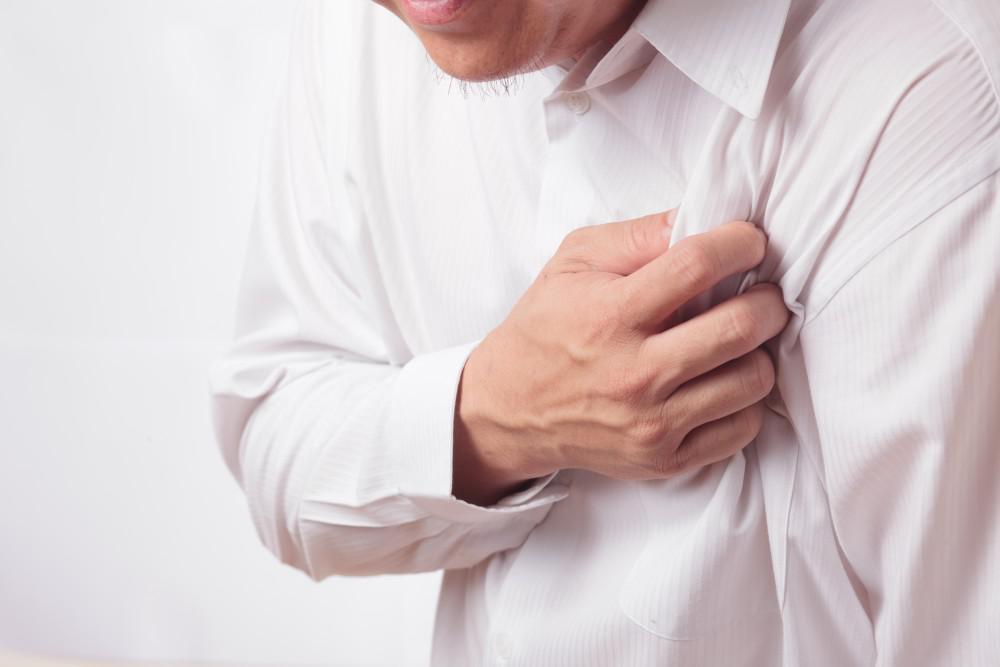
Is Chest Pain Ever Normal?

Chest pain takes many different forms. From an ongoing dull ache to sharp pains that come and go, experiencing chest pain can make you worry that you’re having a heart attack.
While chest pain can indicate a heart attack, there are lots of other possible causes, and they’re not all life-threatening. Muscle strains, acid reflux, and even indigestion could cause chest discomfort, as pain is your body’s way of telling you something is wrong.
Chest pain has a variety of causes, but it’s not normal and you should never ignore it. Kunal Patel, MD and our cardiac team at NJ Cardiovascular Institute specialize in diagnosing and treating chest pain, and we’re here to help you figure out what’s causing your discomfort.
Possible causes of chest pain
Your chest includes the area on the front of your body, from your stomach to your shoulders. It contains lots of bones and muscles, and the two main organs in your chest are your heart and lungs.
A few common vascular conditions that may cause chest pain include:
- Heart attack (myocardial infarction)
- Angina
- Aortic dissection
- Pericarditis
- Pulmonary embolism
Sometimes, chest pain has nothing to do with your heart or vascular system. Other conditions that can cause chest discomfort include:
- Acid reflux (heartburn)
- Bronchitis or pneumonia
- Gallstones
- Muscle strain
- Panic attack
- Shingles
Different conditions cause different types of pain, but you shouldn’t try to self-diagnose your condition.
Making a doctor’s appointment for chest pain
If you notice mild-to-moderate chest pain without any other symptoms, schedule a cardiology appointment to have an exam. At NJ Cardiovascular Institute, we offer comprehensive diagnostic testing, including stress tests and echocardiograms, to identify any irregularities in your heart’s function.
Regular doctor’s appointments are important, even if you aren’t bothered by chest pain. High blood pressure, high cholesterol, and heart disease are very common health issues that can cause heart problems - but they don’t have noticeable warning signs.
Dr. Patel and our team want to make heart health part of our patients’ lives. Our Heart Smart Program makes it easy to implement healthy lifestyle changes and improve your heart health one step at a time.
Emergency care for chest pain
Heart attack, pulmonary embolism, and other serious conditions are life-threatening and require emergency medical care. Call 911 or go to the nearest emergency department if you notice symptoms including:
- Crushing or squeezing chest pain
- Pain in shoulders or arms
- Shortness of breath
- Lightheadedness
- Cold sweat
- Nausea
- Vomiting
If you’re unsure whether you or someone near you is experiencing a medical emergency, don’t hesitate to seek immediate medical attention.
Chest pain isn’t normal, but experiencing it doesn’t mean you need to panic. Turn to Dr. Patel and our team at NJ Cardiovascular Institute for quality heart care. Call the New Jersey office nearest you or request your first appointment online today.
You Might Also Enjoy...


New Year, New You: 5 Resolutions for a Healthier Heart

Navigating Holiday Feasts: A Guide to Heart-Healthy Eating

5 Warning Signs of Atrial Fibrillation You Shouldn't Ignore

4 Reasons Your Varicose Veins Look Bigger and Darker

